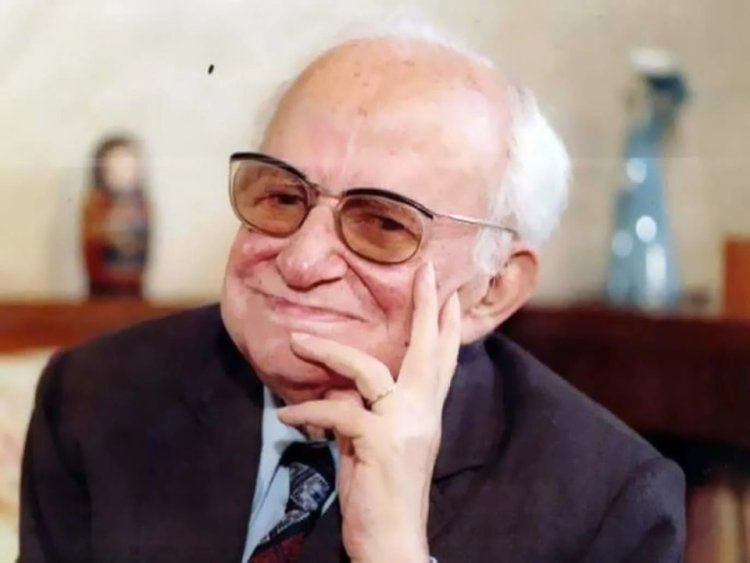"Yahya Haqqi" The lamp that still lights our path

Reviwed by: Wafaa El-houseiny
Translated by: Aya Brakat
"Yahya Haqqi" The lamp that still lights our path
"Fortunately, there are no people who can stop mentioning you, no others can forget you, and people can forget you then remember you."
"Haqqi” occupied a firm position in the world of the novel, and his works were translated into several languages, during which he chronicled the national conscience. He lived his entire life away from the limelight, ascetic in it, believing in new literary talents, taking upon himself the responsibility of nurturing them and presenting them to society, He was also one of the most important pioneers of the modern literary school who concerned himself with the Egyptian character, established its customs, and embodied its identity through their writings. He was even one of the activists calling for political rights and social justice in the twenties and thirties of the last century.
Haqqi’s writings were and still are lessons in simplicity, sweetness, eloquence, and power of expression. Perhaps his novels are “Qandil Umm Hashem” in 1943, “Oh Night, O Eye,” “Sah al-Num” in 1954, “Mother of the Disabled” in 1955, and “Blood of My Homeland” in 1959. “The Perfume of Loved Ones,” “The Shop Cleaner,” and “Leave it on God,” 1959 among his most famous collections of short stories, in addition to his other literary works, such as his masterpiece “Al-Bostaji” “An Idea and a Smile” “The Kohl Thief “Ode to Simplicity”, “Come with Me to the Concert” “A Tear and a Smile” “In the Sanctuary of Art” “ The Shop Sweeper,” “Theater School,” “From the Generous Iceberg,” “People in the Shadows,” “This Poetry,” and “Miri’s Dust,” in which he sided with the marginalized, and most of which were transformed into great cinematic works.
Yahya Haqqi was born on January 17, 1905, in Darb al-Maida, Sayyida Zeinab, Cairo. He grew up in an educated family interested in reading and literature. He joined the Khedive School, then studied law at Cairo University, where he graduated in 1925, Then he worked as an acting representative, and after that, he joined the Ministry of Foreign Affairs, where he worked at the Egyptian Embassy in Jeddah, then he moved to the Egyptian Embassy in Rome, where he continued until 1939. Then he returned to Egypt, and was appointed Third Secretary in the Economic Department, at the Egyptian Ministry of Foreign Affairs, and stayed in the Ministry for ten years. During this, he was promoted to the rank of first secretary. He served as director of the Foreign Minister’s Office and remained in his position until 1949. Then he moved to work as a secretary at the Egyptian embassy in Paris, then as minister plenipotentiary in Libya in 1953. He returned and left the diplomatic corps, to be appointed in 1958 as director of the Department of Foreign Affairs. Arts at the Egyptian Ministry of Culture, then he worked as editor-in-chief of “Al-Majalla” magazine in the period between the years (1962-and 1970), then he left it and announced his retirement.
Yahya Haqqi received numerous local and international awards, including the award of the State Appreciation in Literature in 1969, and the first class "Knight's Medal" was awarded by the French Government in 1983. He was awarded his honorary doctorate from the University of Minya in the same year, in recognition and acknowledgment of his literary leadership and great value in the cultural and artistic environment. In 1990, Haqqi received the King Faisal International Prize, the branch of Arab literature, for being a pioneer of the modern Arab story.
The great critic Rajaa Naqqash describes him in his book “Yahya Haqqi... The Artist, the Man, and the Ordeal,” saying: “If you read the various pages of his life, you will not find a single situation in it that could arouse blame or criticism. It is a clean, productive life characterized by wisdom, patience, talent, diversity, and deep, calm work".
Thus, the great writer “Yahya Haqqi” left a literary legacy and an inspiring career, like a lamp that illuminates the paths of generations after him, expanding their horizons whenever they look at it until he passed away from our world in 1992 at the age of 87 years of influence and struggle.
